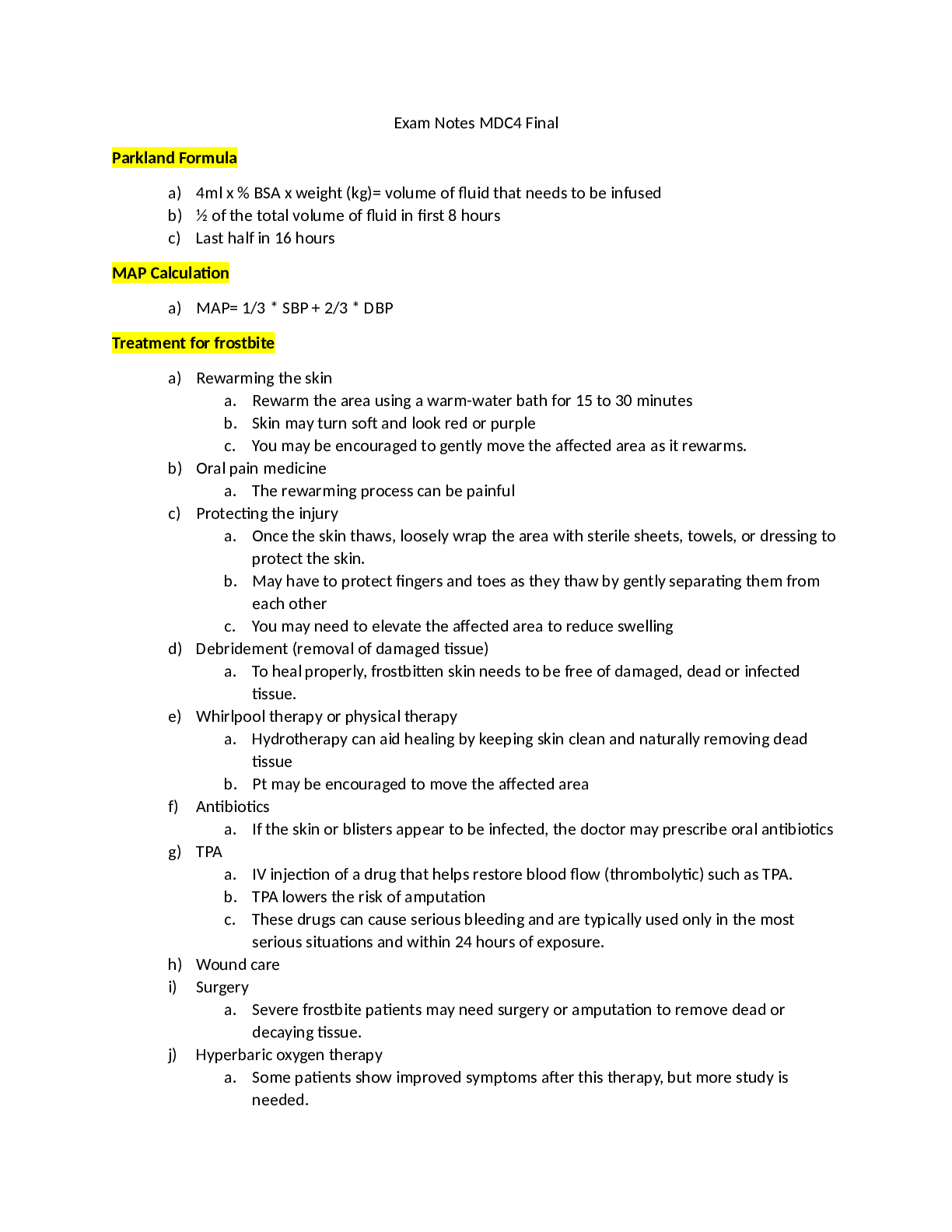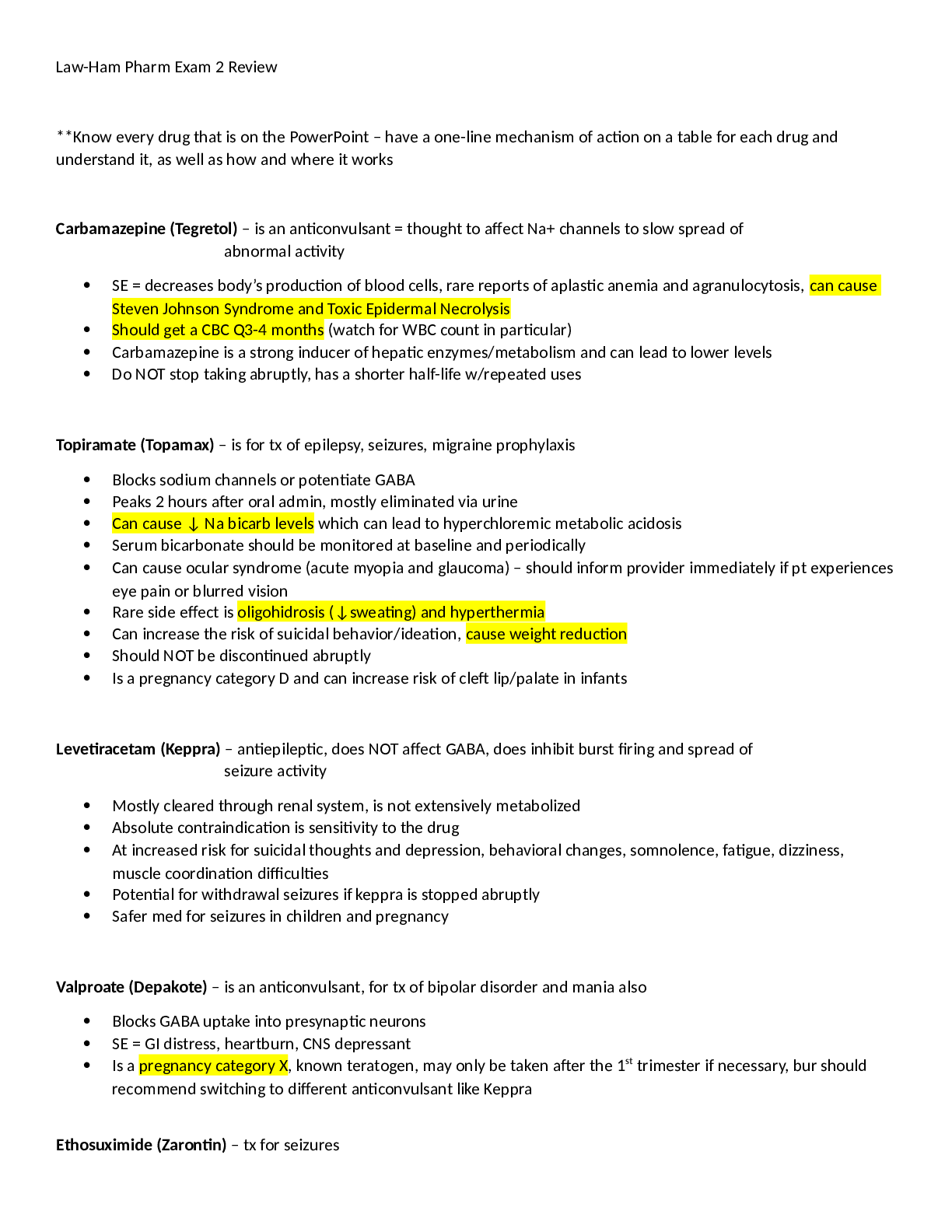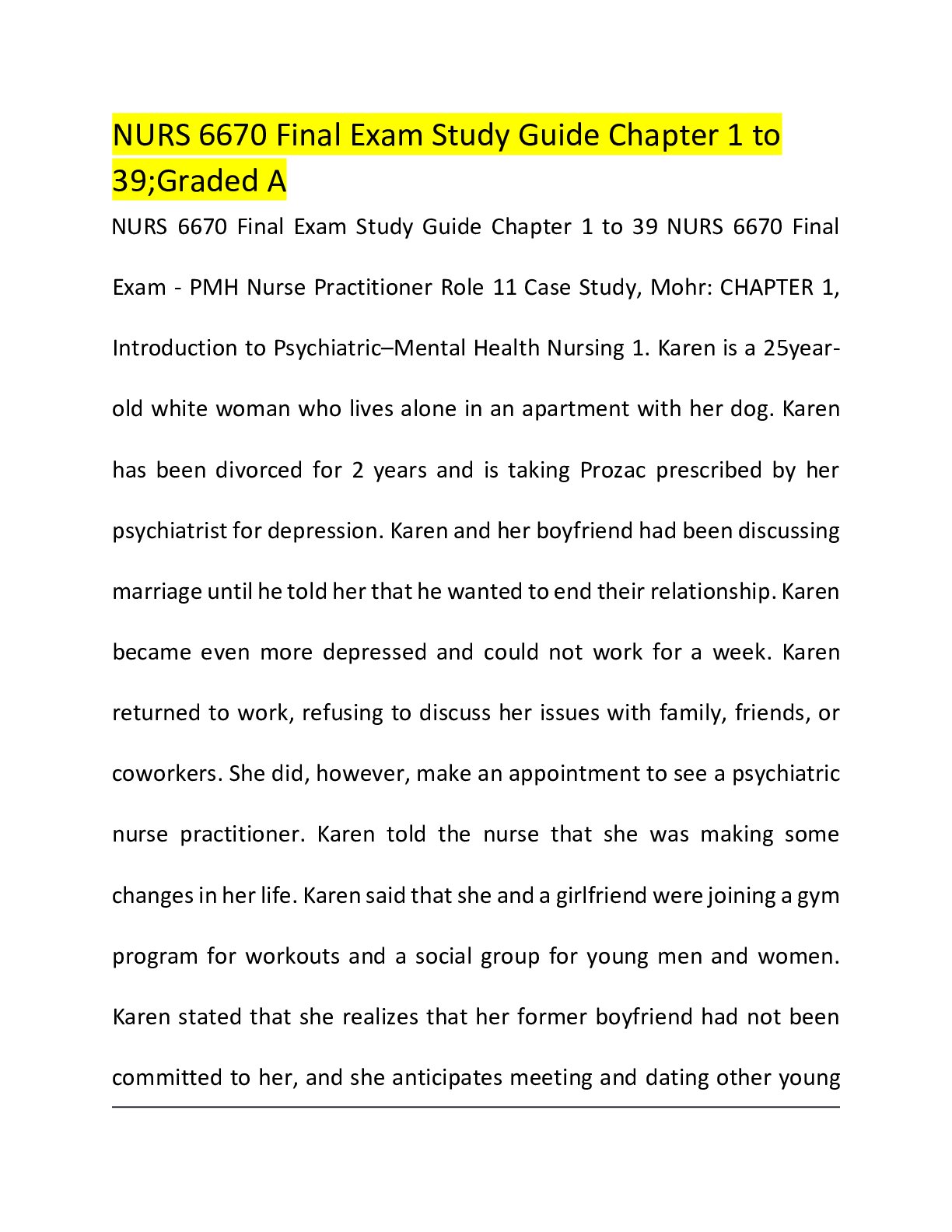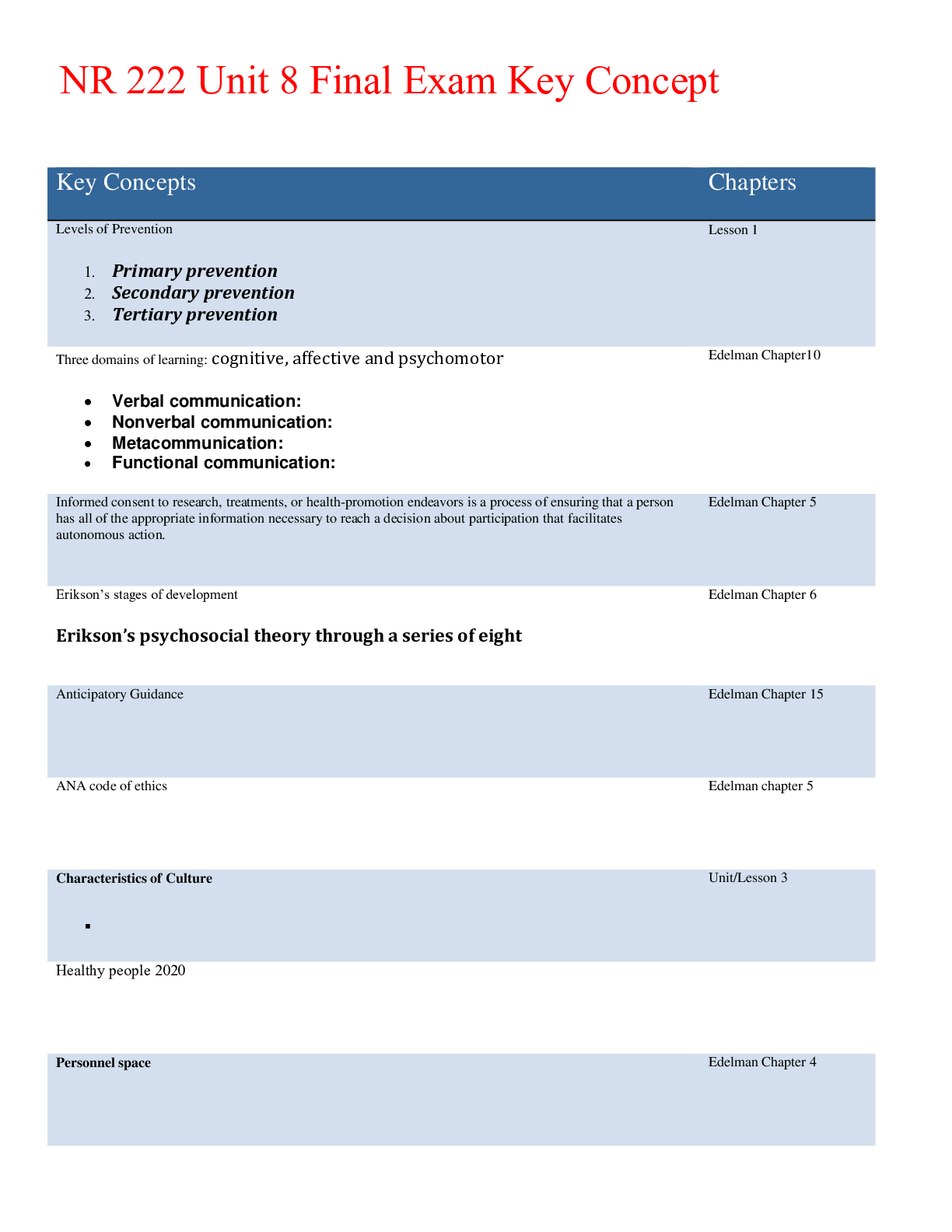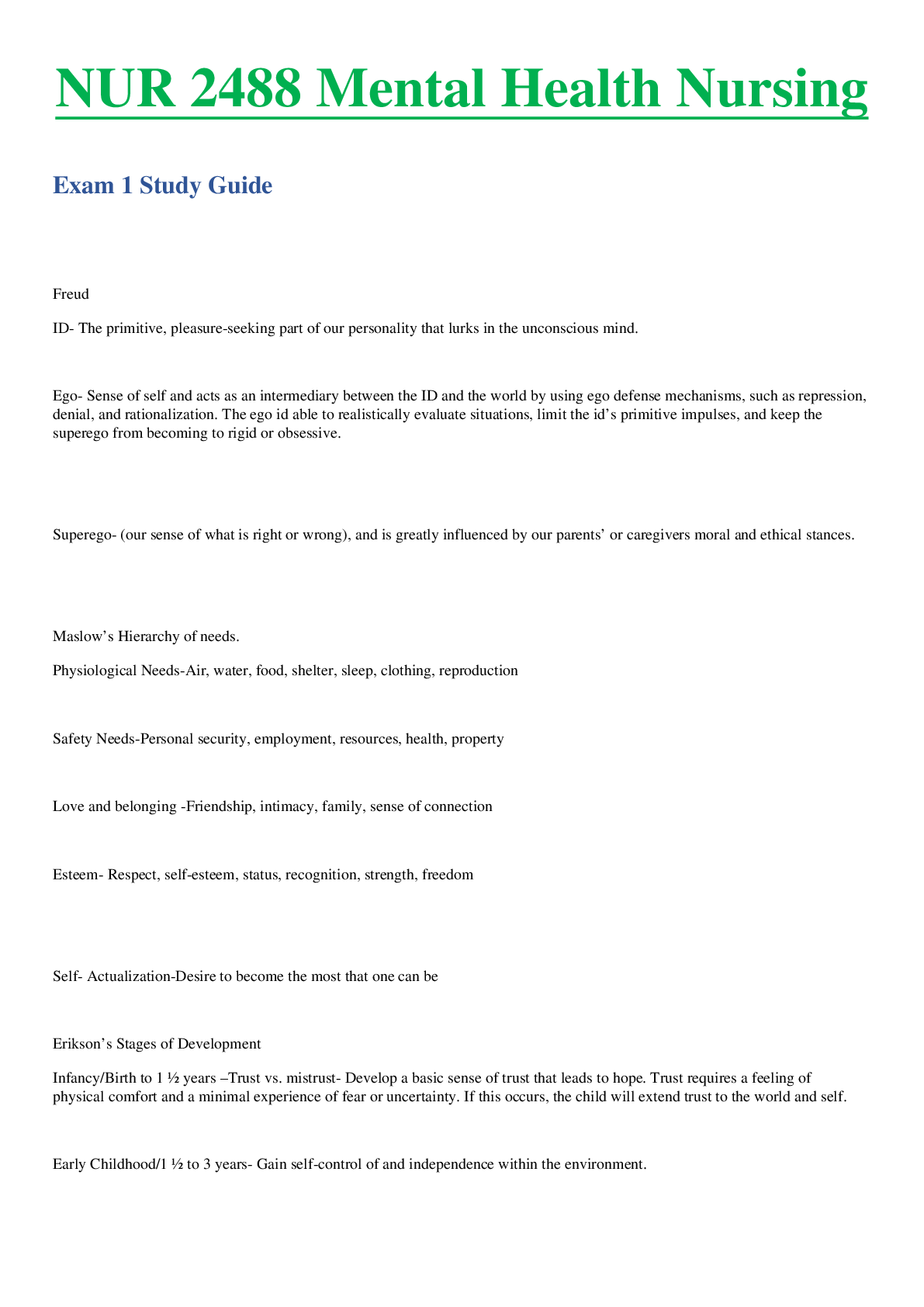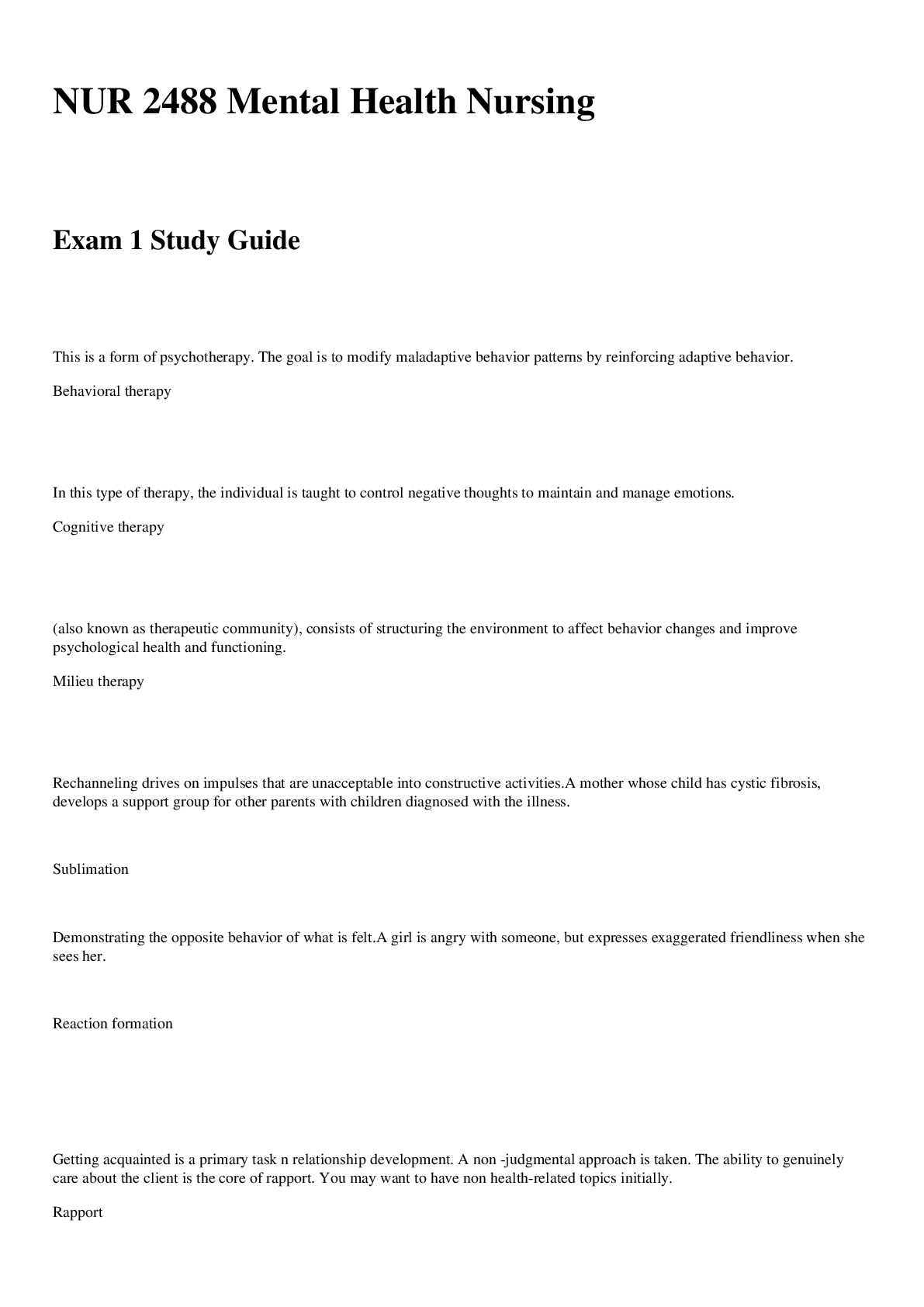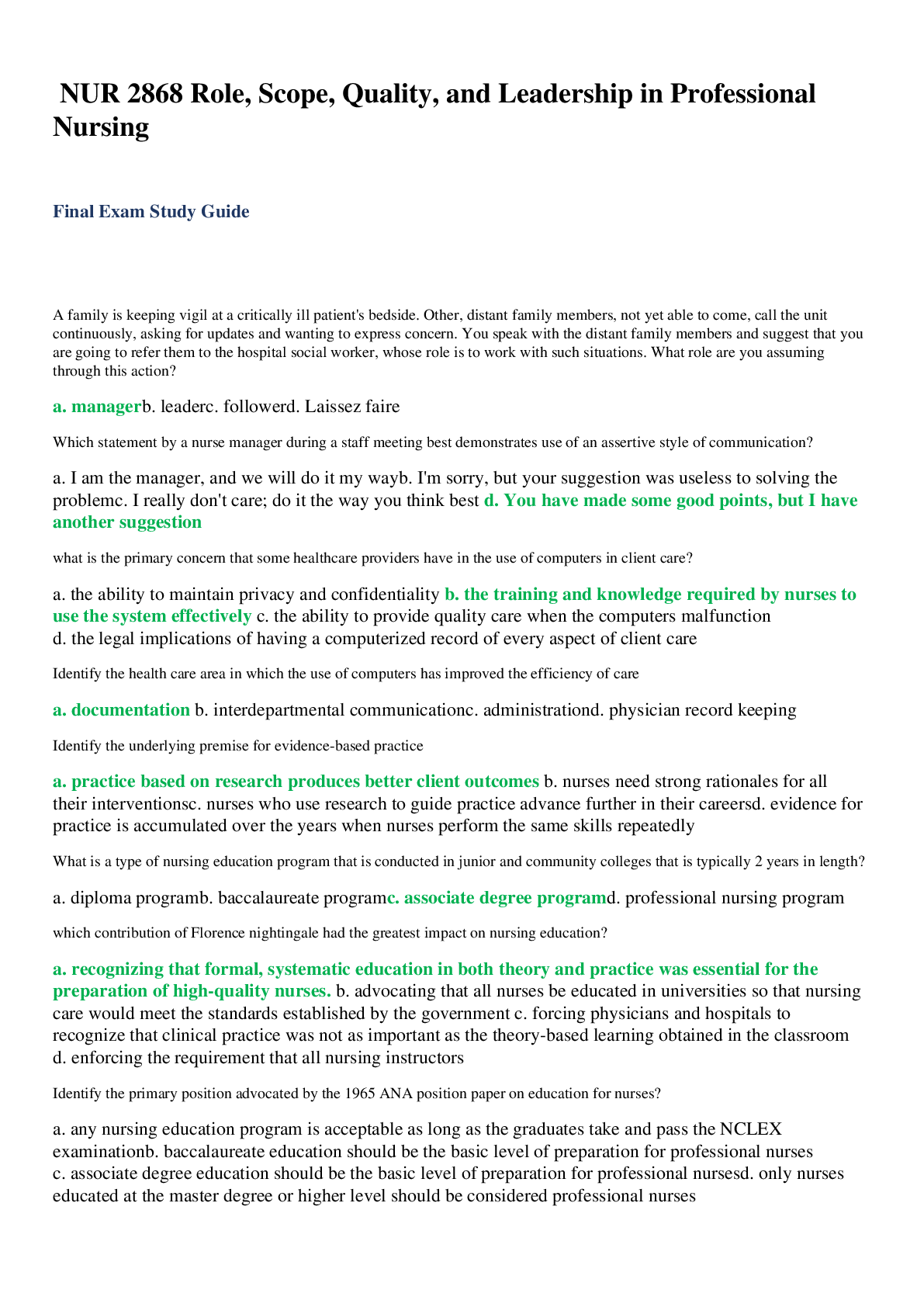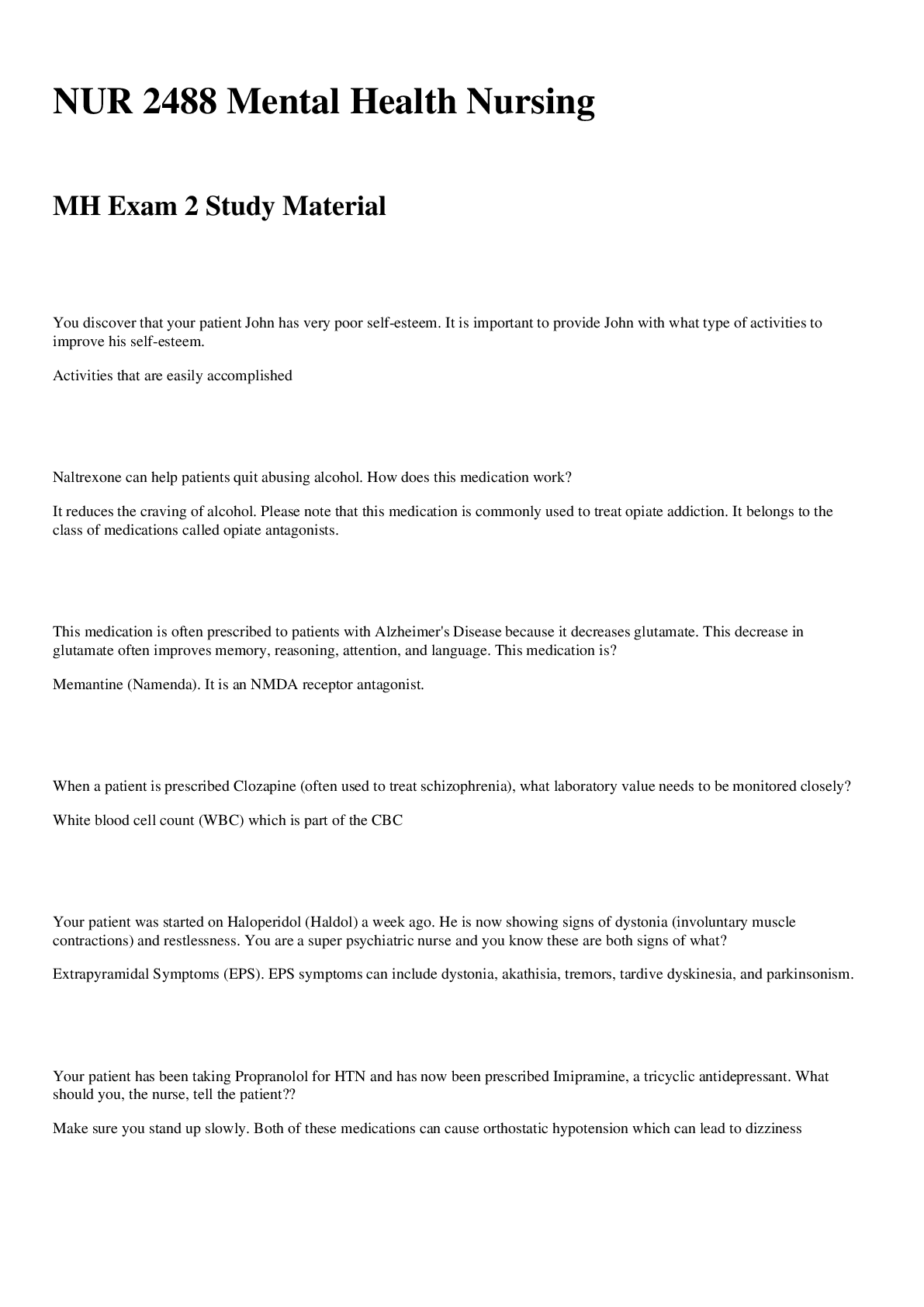*NURSING > STUDY GUIDE > NUR 2488 Mental Health Nursing Final Exam Key Concepts/NUR2488 Mental Health Nursing Final Exam Stud (All)
NUR 2488 Mental Health Nursing Final Exam Key Concepts/NUR2488 Mental Health Nursing Final Exam Study Guide (A+ Rated, Very Reliable)
Document Content and Description Below
NUR 2488 Mental Health Nursing Final Exam Key Concepts NUR2488 Mental Health Nursing Final Exam Study Guide Complete Study Guide, A+ Rated Very Reliable ... Introduction in Psychiatric Nursing Understand milieu therapy- can you describe it in a clinical setting? Describe the difference between mental health and mental illness Mental health: a person’s condition with regard to their psychological and emotional well-being: Mental illness: a disorder or disease affecting a person’s psychological and emotional well-being. Maslow’s Hierarchy of needs (pg 31) Review table 3-2 (pg 28) Freud-(Apply concept of Id, Ego and Superego) (page 19) One of Freud’s later and widely known constructs concerns the intrapsychic struggle that occurs within the brain among the id, the ego, and the superego. The id is the primitive, pleasure-seeking part (according to Freud, predominantly sexual pleasure) of our personalities that lurks in the unconscious mind. (Unconscious) Pleasure-pain principle Id, the instinctive and primitive mind, is dominant Demanding, impulsive, irrational, asocial, selfish, trustful, omnipotent, and dependent Primary thought processes Unconscious instincts—source-energy-aim-object Mouth—primary source of pleasure Immediate release of tension/anxiety and immediate gratification through oral gratification Task—develop a sense of trust that needs will be met The ego is our sense of self and acts as an intermediary between the id and the world by using ego defense mechanisms, such as repression, denial, and rationalization (conscious) The superego is assigned to those processes that Freud referred to as our conscience (our sense of what is right or wrong) and is greatly influenced by our parents’ or caregivers’ moral and ethical stances. The assumption is made that in healthy individuals, the ego is able to realistically evaluate situations, limit the id’s primitive impulses, and keep the superego from becoming too rigid and obsessive. (Unconscious) Therapeutic Communication Be able to given examples of verbal and non-verbal communication [Show More]
Last updated: 2 years ago
Preview 1 out of 60 pages
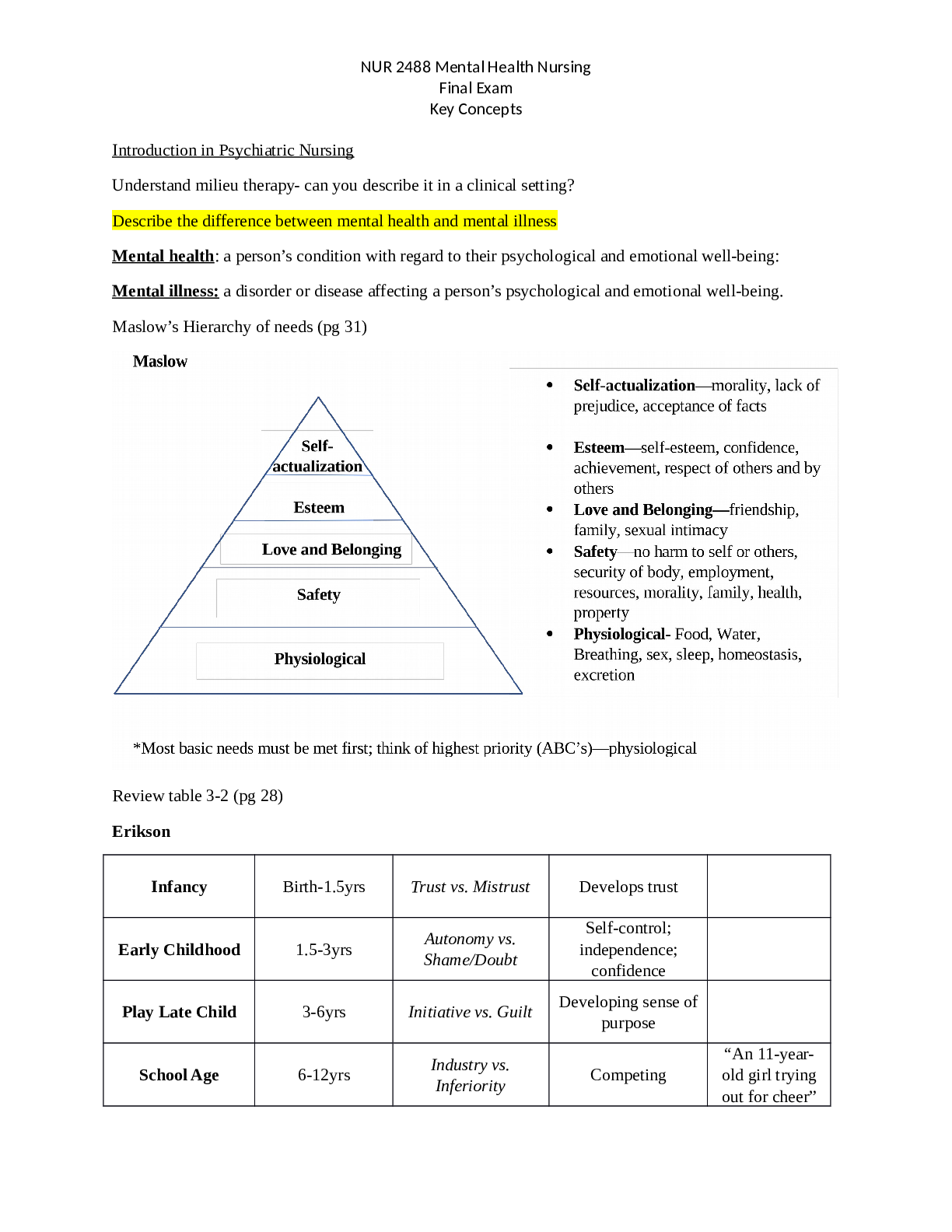
Buy this document to get the full access instantly
Instant Download Access after purchase
Buy NowInstant download
We Accept:

Reviews( 0 )
$10.00
Can't find what you want? Try our AI powered Search
Document information
Connected school, study & course
About the document
Uploaded On
Aug 03, 2021
Number of pages
60
Written in
Additional information
This document has been written for:
Uploaded
Aug 03, 2021
Downloads
0
Views
94


.png)

.png)
